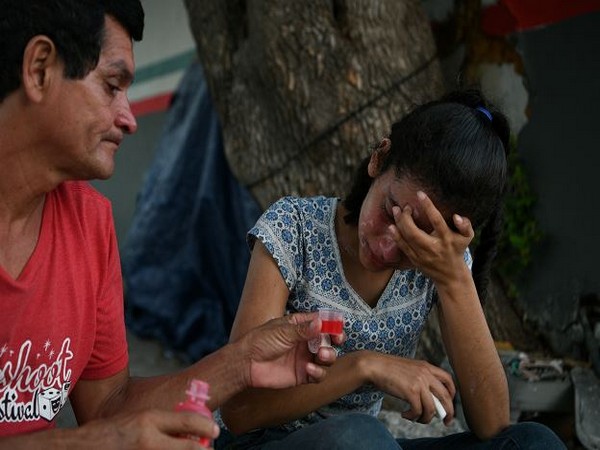A corporate icon with feet of clay
When it comes to successful corporate leaders, CEOs, or business tycoons, India’s mainstream business media have usually been hagiographical in their features, stories or reports (quick disclosure: for a large part of my long career as a journalist, I have been part of that endeavour). The tendency to to puff up business personalities or add extra hype to their achievements is something that has been ubiquitous in business publications, particularly in the 1990s. It is during the latter part of that decade that Chandha Kochhar’s public image began getting built up.
Her rise, first at the Industrial Credit and Investment Corporation of India (ICICI), which she joined as a management trainee, and then at the bank it became, was always celebrated by the media. Kochhar and a few of her women colleagues were handpicked and groomed by the then head of ICICI, the legendary Narayanan Vaghul who transformed the organisation and, uncommon in that era, gave women managers the opportunity to break the glass ceiling and get positions in the C-suite, which was, especially in Corporate India and particularly in the banking sector, till then a rarefied preserve for men.
Kochhar eventually became chairperson of ICICI Bank and was feted regularly by various forums–topping the rankings of women CEOs, popularity polls, and so on. Till her reputation took a nose-dive. It happened in the most sordid of ways but one that is very common in Indian business: corporate cronyism. The details of how Kochhar allegedly got her bank to sanction loans worth ₹3,250 crore to the Videocon group, which in a suspected quid pro quo, invested in her husband, Deepak’s renewable energy venture, are by now well-known. Kochhar has fallen from grace and she and her husband are now in jail.
Some media have still lamented Kochhar’s fate and described her rise and fall from grace as an unfortunate saga. The fact, however, is that in India we often tend to accord disproportionate credit and praise upon people who are probably just doing their jobs. Kochhar was a banker and not a bad one for much of her career. Was she extraordinary in her achievements? Probably not till she got embroiled in the scam that combusted her career.
The thing is that the scandal that involves her is not even an ingenious one. There is nothing original nor new about cronyism in Indian banking. Legions of bankers have over the years had nexuses with business and industry. Instances of banks lending money to ventures and companies that are doomed to fail are myriad in Indian corporate history. Most of what Kochhar’s bank lent to Videocon turned into bad debt. And instances where quid pro quo of the kind that she is involved in are as common as kickbacks to bankers are for large loan sanctions.
The lesson from the Kochhar saga should be that the media ought to exercise self-restraint and control when it comes to reporting or writing on business personalities. Restraints and controls that stop themselves from getting carried away.
Killer Indian cough syrup strikes again
An Indian made cough syrup has been identified as being a child killer drug. First, nearly 70 children in Gambia died after being administered the drug. And then, more recently, 18 children in Uzbekistan succumbed similarly. The company that made the syrup that killed the Uzbekistani children, the Noida-based Marion Biotech, says it has suspended production of the syrup. But while a debate rages on about the culpability of the company, little action has been taken against it.
India is billed as being the pharmaceuticals capital of the world, primarily because Indian pharma companies are adept at making generics and equally adept at keeping costs and, therefore, prices down. Incidents such as the ones caused by the killer syrup can dent that reputation and hobble India’s ambition of a drug supplier to the world.
That is one consequence of the deaths in Gambia and Uzbekistan. The bigger one is about what happens to the pharma companies involved in these incidents? If human lives have been the toll that has had to be paid for their alleged action, should not the strictest punishment be meted out to those who are in charge of the companies? Till date, however, there has been no indication of such action. That is truly unfortunate.
Will China’s economy overtake the USA?
The Economist recently did a thought provoking story about whether China could become the largest economy in the world by taking over the USA’s. First, the facts. China has a population that is more than four times the US’s ( China’s pop. is 1.4 billion; the US’s is 331 million). Second, in terms of purchasing price parity (PPP), or rates of currency conversion that try to equalise the purchasing power of different currencies, by eliminating the differences in price levels between countries, China’s GDP overtook America’s six years ago.
However, when converted into dollars and using the normal exchange rates, China’s GDP, says The Economist, was $17.7 trillion compared to the USA’s $23 trillion. The magazine also says that China’s growth is slowed down by several factors and that could mean that it could lose out in the catch up game. China’s severe lockdowns when Covid breaks out, its depressed industrial and business sentiments because of fresh regulations on tech and other sectors that were rapidly growing before could all affect GDP growth. According to the magazine, the Chinese economy, which grew at 8.1% in 2021, may be “lucky to grow by even 3% this year”. So, it could take a while before China tops the list of the world’s biggest economies.
Regression continues unabated in Indian “culture”
It is 2023 and in India, and religious sentiments are being hurt because of a skimpy outfit that a film actor–Deepika Padukone–has worn in a forthcoming film in which she co-stars with Shahrukh Khan. The hurt sentiments are not because of the skimpiness of Padukone’s outfit–it is a bikini–but because of its colour (it is orange or, if you like, saffron) and the lyrics of a song that accompanies her and Khan’s dance in the film (the lyrics describe the colour as being “besharam” or shameless and also that the “world has not seen my true colours yet”).
The sentiments are so badly hurt that some people have burnt effigies of Padukone and Khan in north India and many have called for a ban on the song. The board that certifies films in India has also instructed the filmmakers to edit the film appropriately. While no official statement has been forthcoming, it is believed that the protests may well have been instigated by the Bharatiya Janata Party, whose symbolic colours feature saffron, a hue similar to orange.
Thin-skinnedness is so rampant in the Indian scenario today that it is scary. Also, could it be that we are waiting for a day when there could be a call for a ban on one of the most common ingredients in an originally Muslim dish, biryani–saffron?
Crime goes digital… sort of
This one is designed to begin the year on a macabre note. According to media reports, a man in Uttar Pradesh who was arrested on suspicion of killing his wife may have done so after googling “how to commit a murder”. Police said he also allegedly tried to buy poison from a B2C e-commerce site, Flipkart and also searched Google to see whether he could buy a gun online.
Crime in the age of Google may not be clever but it certainly can be unconventional.

